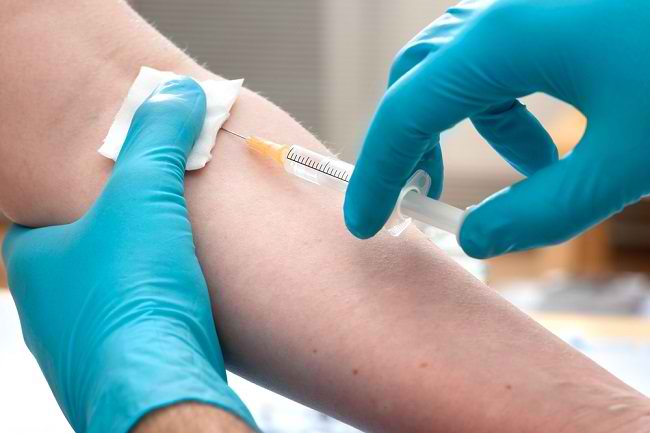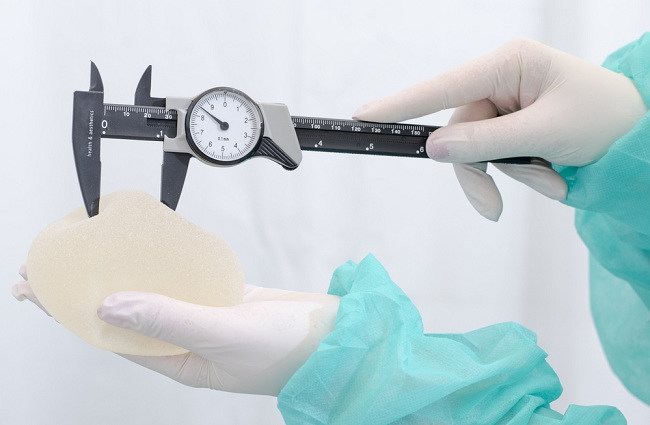Pregnant women need a number of nutrients such as protein, calcium, vitamin D, folic acid, and iodine. These nutrients can be obtained from the milk of pregnant women sold in the market. In addition to paying attention to what the milk contains, also pay attention to whether the milk has gone through the pasteurization process. Usually this information is listed on the packaging.
Milk is a good source of calcium for pregnant women. In addition to calcium, nutrition for pregnant women's milk is usually added with vitamin D, folic acid, and iodine. Let's examine the content that is usually in the milk of pregnant women and why milk that has not gone through the pasteurization process is considered dangerous.

Nutrient Content in Pregnant Mother's Milk
- Calcium
Calcium needs for women over the age of 19 years is 1,000 mg per day, both before pregnancy, during pregnancy, and after childbirth. While women aged 18 years and under need more calcium, which is 1,300 mg per day. In general, calcium is needed to prevent bone loss or osteoporosis, and to help strengthen bones for pregnant women. In addition to pregnant women, calcium is also beneficial for the fetus, namely to:
- Helps heart development.
- Maintain a normal heart rhythm.
- Helps blood clotting ability.
- Forms strong teeth and bones.
- Helps nerve and muscle development.
Pregnant women's milk generally contains calcium. A cup of skim milk can give you 300 mg of calcium. Dairy products such as yogurt and cheese can also be an option to get calcium intake. Apart from milk, you can get calcium from other sources, such as sardines.
- Folic acid
Folic acid is in charge of helping the formation of blood and protein, as well as maximizing the work of enzymes for pregnant women. Folic acid is also useful in protecting the fetus from nervous system defects. Folic acid is needed, especially in the first trimester of pregnancy, because that's when the brain and nervous system of the fetus are formed and develop rapidly.
Pregnant women are advised to consume 400 micrograms of folic acid per day. Folic acid intake can be obtained by eating nuts, green vegetables such as spinach and broccoli, and green or yellow fruits such as oranges and papaya. Apart from food, folic acid can also be obtained from pregnant women's milk and prenatal vitamins.
- Protein
This intake is one of the main nutrients needed by pregnant women. Protein is the basic material for the formation of fetal cells and tissues, as well as the production of red blood cells for the mother and fetus. The recommended amount of protein intake during pregnancy is 40-70 grams per day.
Protein can be obtained from animal sources, such as milk and processed products including cheese, butter, and yogurt, as well as meat, fish, and eggs. Sources of protein from plants, such as nuts, tofu, and nut milk, are also good for meeting the protein needs of pregnant women.
- Vitamin D
Vitamin D helps regulate calcium and phosphate levels in the body. Therefore, a lack of vitamin D can also cause the body to lack these two nutrients. In addition, vitamin D can also help fight infections, help prevent diabetes, and some cancers.
Vitamin D can be produced naturally by the body with the help of sun exposure. You can sunbathe in the morning for 10-20 minutes, but it is recommended until 10.00 am maximum.
Vitamin D is also commonly added to the milk of pregnant women. Pregnant women need about 15 micrograms or 600 IU of vitamin D every day. From a cup of pregnant women's milk fortified with vitamin D, you can get at least 100 IU of vitamin D.
- Iodine
The daily need for iodine for adults is 150 micrograms, while for pregnant women it is more, which is 220 micrograms. If pregnant women lack iodine, it is feared that it can interfere with fetal brain development. As a result, it can reduce the intelligence of children later. Iodine can be obtained from iodized salt, and is usually also found in the milk of pregnant women.
Recommended Pregnant Mother's Milk
In addition to ensuring the content of milk to help meet the nutritional needs of pregnant women, it is recommended to consume milk that has passed the pasteurization process. You can see the 'pasteurized' label on the packaging.
Unpasteurized milk, such as raw milk straight from a cow, can contain harmful bacteria. The pasteurization process is carried out to kill these bad bacteria using high temperatures, but still does not damage the beneficial nutritional content in milk.
Pregnant women can face serious conditions if they consume milk contaminated with bacteria, such as: listeria, Salmonella, and E. coli. These bacteria can cause fetal death, newborn death, and miscarriage.
Always take the time to read the nutritional information on the packaging of pregnant women's milk before buying it. Don't forget to make sure the milk has gone through the pasteurization process.









